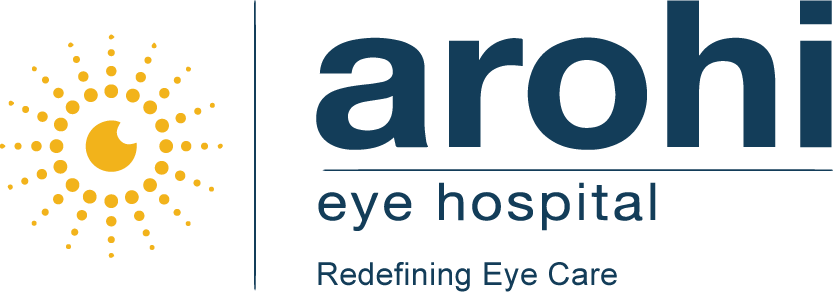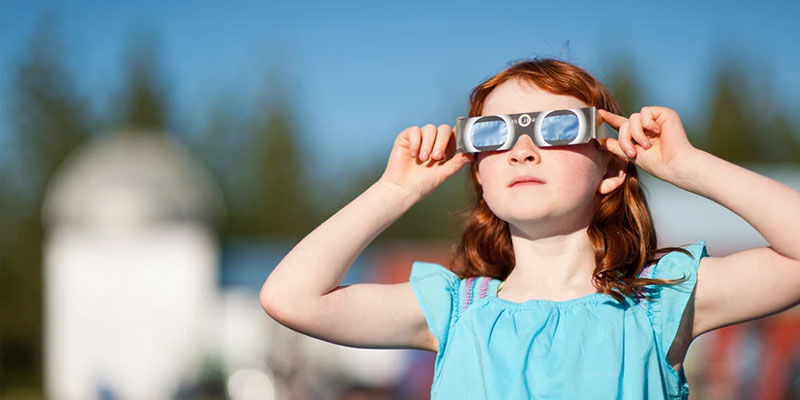Looking at a solar eclipse is as dangerous as staring at the unblocked sun and can cause damage to the retina, the light-sensitive nerve layer at the back of the eye. The damage affects the macula, the part of the retina responsible for fine central vision.
Many people think they can protect their eyes by looking through filtered binoculars, sunglasses, neutral density filters, or exposed photographic or radiographic films. However, a retinal burn can occur in spite of all these barriers. In a 1970 solar eclipse in the eastern United States, 145 retinal burns were reported even though 40% of the injured patients were using protective filters.
Parents must caution children not to look directly at the sun. Not only are children more tempted to watch an eclipse, but the damage is usually more severe because the child’s natural lens is so clear that it lets more ultraviolet (UV) rays reach the back of the eye.
There are safe ways to view an eclipse. Attend a display at a planetarium or university astronomy department, where optical instruments are used to project an image of the eclipse from a telescope to a screen for safe viewing. Alternatively, watch the eclipse on television or use the simple pinhole camera described below.
Take two sheets of plain white paper. Make a pinhole in the center of one of the pieces. Then stand with your back to the sun and hold the sheet with the pinhole in front, so that the sun shines through the pinhole and onto the other sheet of paper. An image of the eclipse will be projected onto this second sheet. It is amazing how well you can observe a solar eclipse with this simple device.
If you suspect that you or a family member might have suffered a solar injury to the eye, consult an ophthalmologist (eye M.D.) as soon as possible.
Dr. Shradha Goel
Dr. Shradha Goel, Chief Surgeon at Arohi Eye Hospital, is a renowned Phaco-LASIK surgeon with over 10,000 surgeries to her credit. She earned her MBBS from Grant Medical College, Mumbai, and a Master’s in Ophthalmology from Kasturba Medical College, Manipal. As a member of the American Academy of Ophthalmology, Dr. Goel specialises in LASIK, refractive errors, and cataract treatments.

